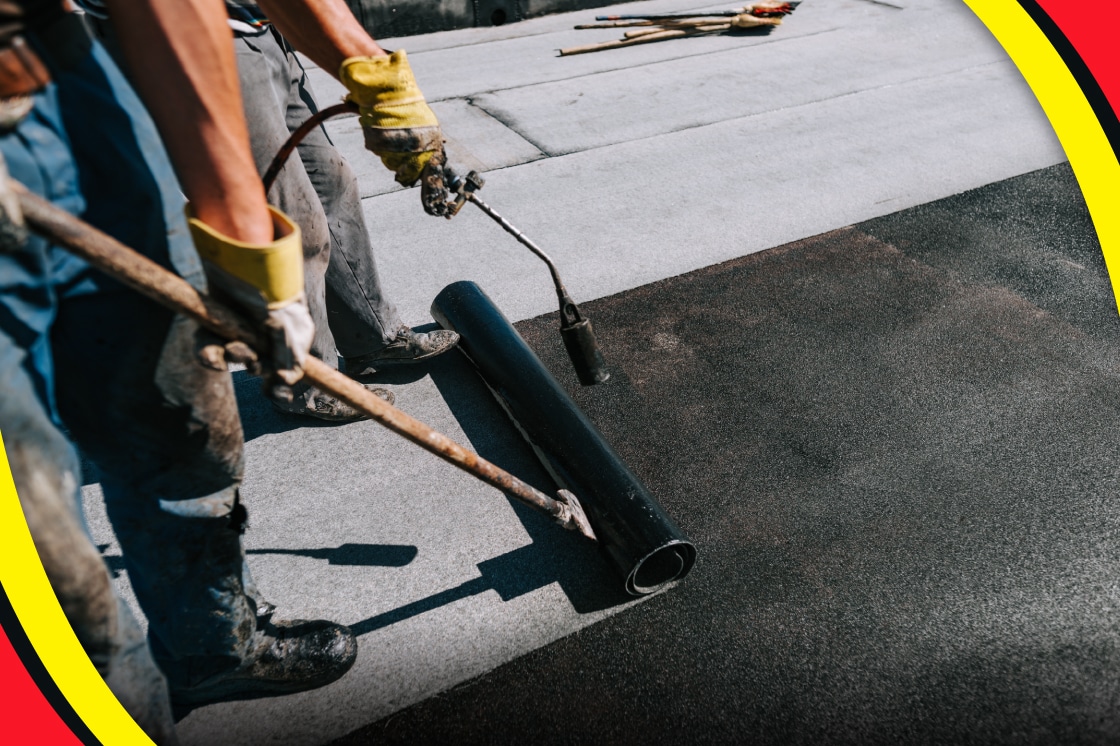For any commercial property in New Jersey, the roof is more than just a protective covering; it’s a crucial component that ensures the safety and integrity of the entire structure. Understanding and effectively evaluating your commercial roofing needs is vital for maintaining the building’s health and efficiency.
Today we’ll give a brief but comprehensive overview of how to assess these needs, and help you make informed decisions about your roofing system.
Understanding Your Commercial Roofing System
Commercial roofing systems vary widely, each suited to different building types and environmental conditions. Common options include:
- Built-up roofing (BUR)
- Metal roofing
- Thermoset (EPDM) roof membrane
- Thermoplastic (PVC & TPO) roof membrane
There are also factors which can influence the choice of roofing system such as the building’s architectural style, load-bearing capacity, and, of course, New Jersey’s climatic conditions. For instance, a flat or low-slope roof may benefit from a membrane system, offering durability and water resistance, while pitched roofs might be more suited to metal or shingle roofing. Understanding the specifics of your roofing system is the first step in effective maintenance and evaluation. And remember, with an area as complex and important as this, contacting professional roofers is always a good idea.
Signs of Roofing Issues
Identifying early signs of roofing issues can prevent costly repairs and prolong the life of your business’ roof. Common indicators include:
Leaks or Water Stains: Water stains on the ceilings or walls could indicate leaks, cracks, or splits in the roofing material. Check for damp spots or discoloration on the ceiling or walls, especially after heavy rain.
Tears or Blisters in Membrane Roofing: Many commercial roofs use membrane roofing materials (such as EPDM, TPO, or PVC). Look for tears, bubbles, or blisters in the membrane, as these can be entry points for water and may compromise the roof’s integrity.
Increased Energy Bills: If energy bills have risen unexpectedly, it could be due to poor roof insulation or ventilation caused by an issue with the roof.
Ponding Water: Flat or low-slope commercial roofs are prone to ponding water, where water accumulates due to poor drainage. Prolonged water pooling can lead to leaks and structural damage.
While some of these may seem like small things, they can easily lead to costly damage, so make sure to keep an eye out for them. Don’t wait until it’s too late!
Professional Roof Evaluation and Maintenance
Evaluation: In the end, inspecting a roof system is a task that most business owners or property managers don’t have the time or experience to do. So professional roof evaluations are essential. These evaluations typically involve a detailed inspection of the roof surface, drainage systems, and flashing details.
Regular Maintenance: Regular maintenance should also be a priority. Cleaning debris, ensuring proper drainage, and repairing minor damage can significantly extend the lifespan of your roof. A professional evaluation not only identifies current problems but also anticipates potential future issues, enabling proactive maintenance.
Upgrading and Replacing Your Commercial Roof
There are situations where repairing a commercial roof is not sufficient and an upgrade or replacement becomes necessary. This may be due to extensive damage, aging materials, or just the need for a more energy-efficient roofing solution. Upgrading to modern roofing materials like cool roofing systems or green roofs can provide enhanced energy efficiency and environmental benefits. When considering a replacement, it’s important to consult with roofing professionals to understand the best options suited to your building’s needs and the local climate.
Frequently Asked Questions
Q: How often should a commercial roof be inspected? A: At least twice a year, ideally in the spring and fall.
Q: Can a new roof reduce energy costs? A: Yes, modern roofing materials and proper insulation can significantly reduce energy costs.
Q: What’s the average lifespan of a commercial roof? A: It varies, but typically 15-30 years depending on the material and maintenance.
Q: How can I extend the lifespan of my commercial roof? A: Regular maintenance, prompt repairs, keeping the roof clean, ensuring proper drainage, and conducting professional inspections can significantly extend the lifespan of a commercial roof.

